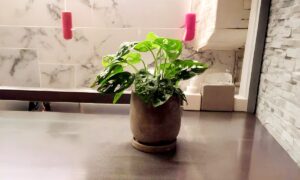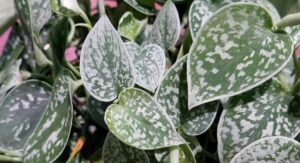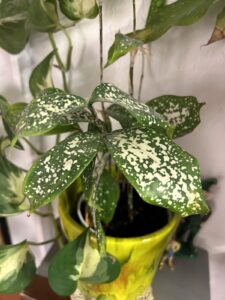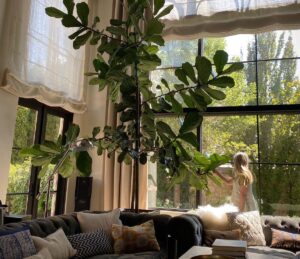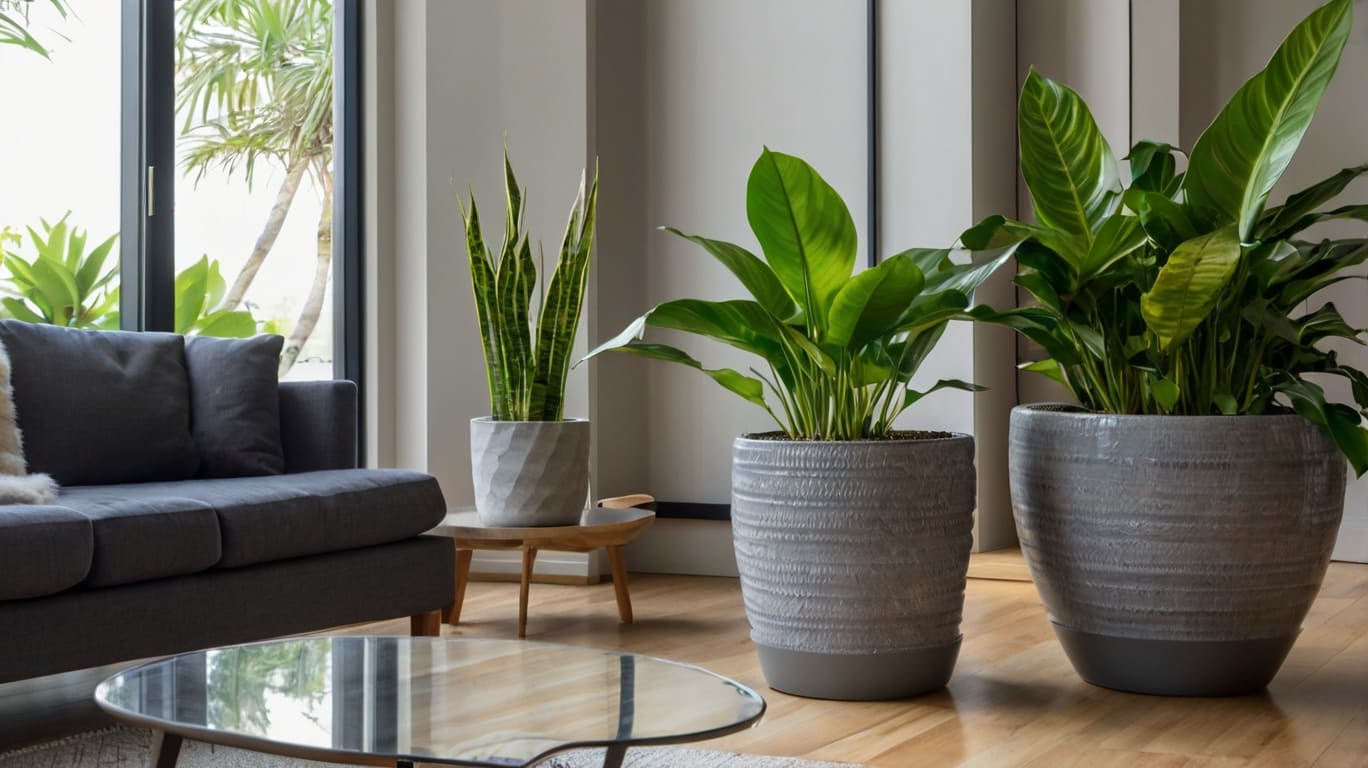
Indoor plants can transform any space by bringing a sense of tranquility and fresh air indoors. Whether you want low-maintenance options or more exotic varieties, there are plants suited to every environment. This guide will provide all the necessary details to help you choose, care for, and decorate with indoor plants.
In this article
- 1 Choosing the Right Indoor Plants
- 2 Low-Light Favorites for Dimly Lit Rooms
- 3 Bright Light Beauties for Sun-Loving Plants
- 4 Air-Purifying Indoor Plants
- 5 Pet-Friendly Indoor Plants
- 6 Designing with Indoor Plants
- 7 Popular Indoor Plants for Every Space
- 8 Specialty Plant Ideas
- 9 Plant Placement Tips for Optimal Growth
- 10 Troubleshooting Common Indoor Plant Issues
Choosing the Right Indoor Plants
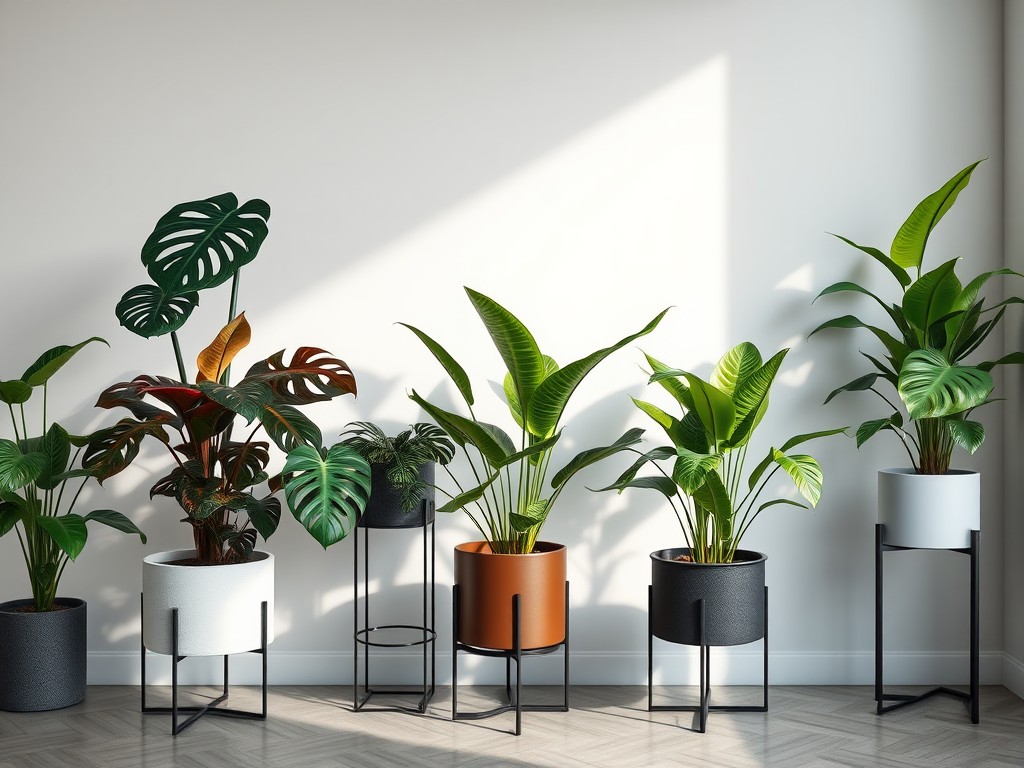
When selecting indoor plants, it’s essential to consider factors like sunlight, humidity, and your space’s overall environment. Different plants thrive in different conditions, so it’s important to choose varieties that will complement your home’s climate.
Low-Light Favorites for Dimly Lit Rooms
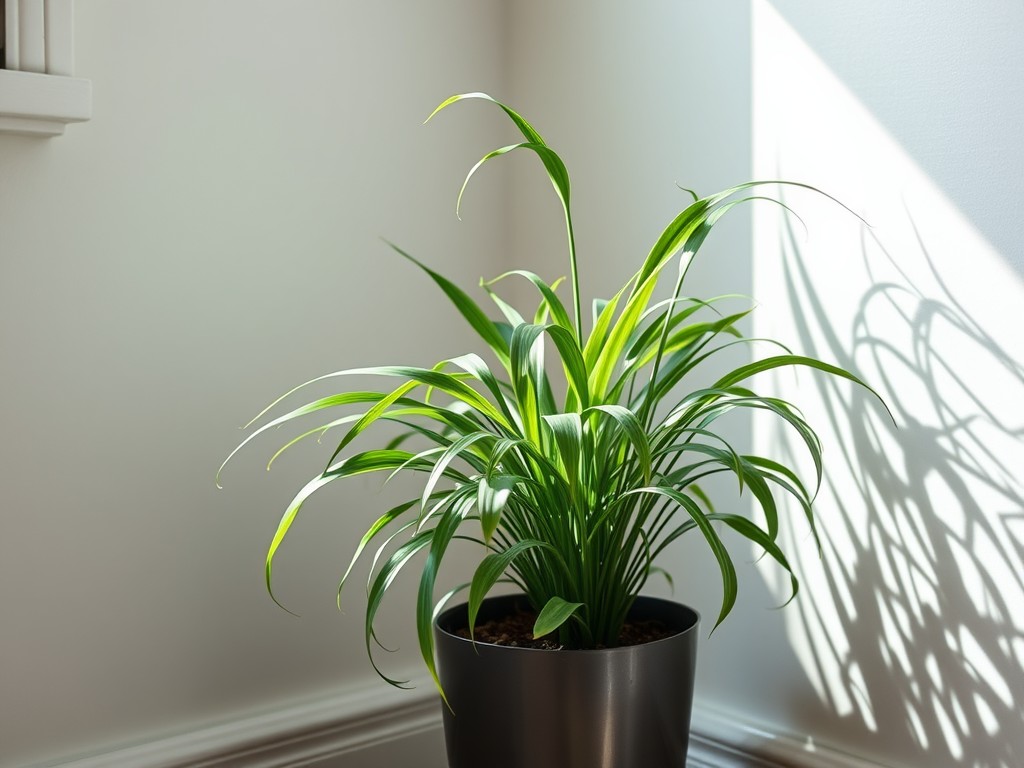
If your home has rooms that don’t receive much natural sunlight, there are several plants that thrive in such conditions:
- Snake Plant: One of the most resilient houseplants, the snake plant can survive in low-light environments. It’s a great option for beginners or anyone without a green thumb.
- Pothos: This popular houseplant is extremely easy to care for and can tolerate low light, making it perfect for bedrooms or offices with limited windows.
RELATED: 10 Best Indoor Plants for Low-Light Areas: From Bathrooms to Basements
Bright Light Beauties for Sun-Loving Plants
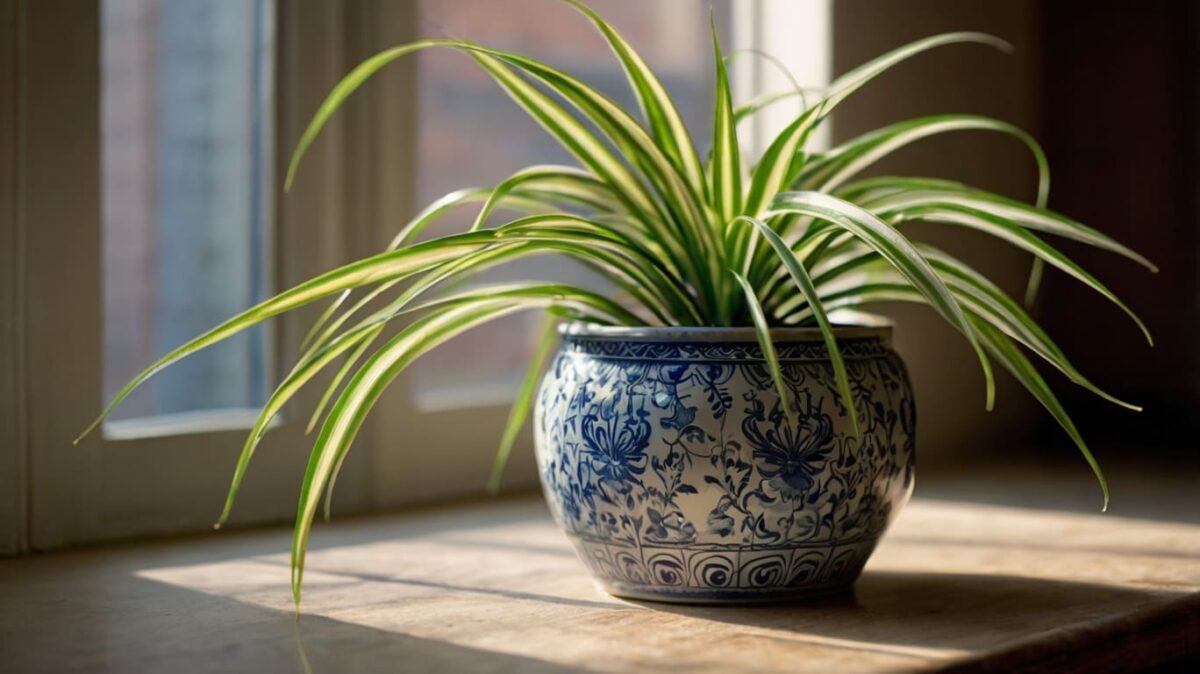
For rooms that receive plenty of natural sunlight, consider choosing indoor plants that love the sun. Some of the best options include:
- Aloe Vera: This succulent not only looks beautiful but also has medicinal uses. It thrives in bright-light environments and is ideal for window sills.
- Spider Plant: Known for its air-purifying qualities, this plant thrives in bright, indirect light. It’s a low-maintenance option for living rooms or kitchens.
Air-Purifying Indoor Plants
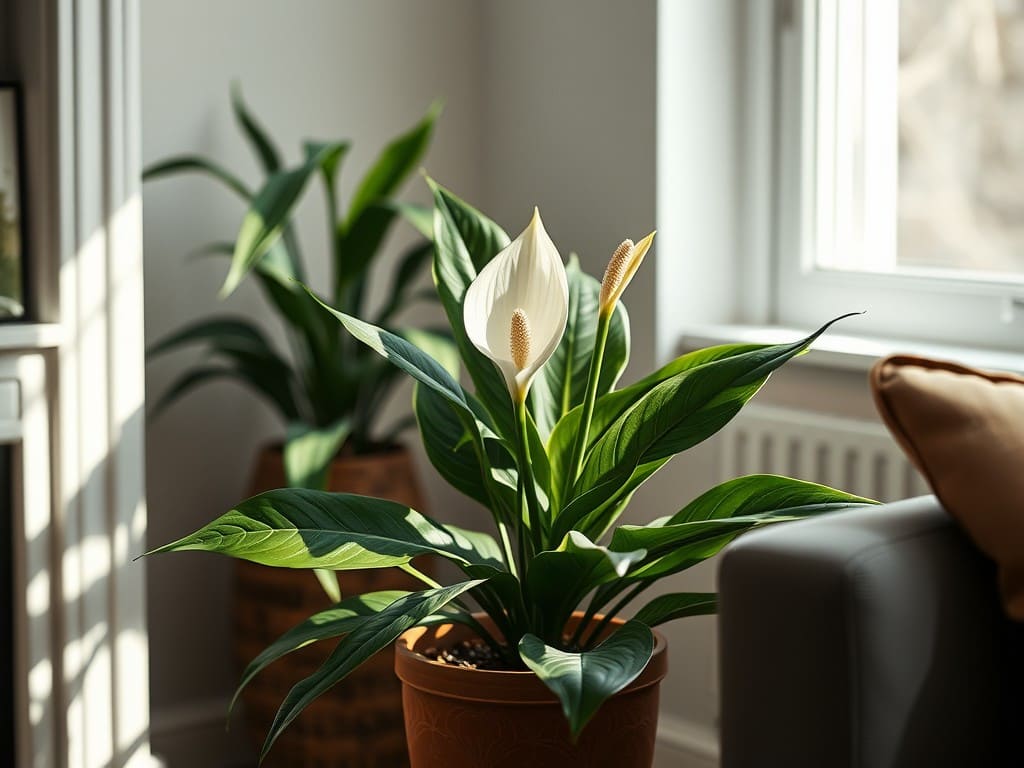
Beyond aesthetics, many indoor plants can improve your home’s air quality by removing toxins and producing fresh oxygen. Some of the best air-purifying plants are:
- Peace Lily: This houseplant is a popular choice for its ability to filter harmful pollutants from the air. It’s also easy to care for, requiring only moderate light and moist potting soil.
- Boston Fern: A classic option for indoor gardening, the Boston Fern excels at purifying the air and prefers humid environments like bathrooms.
RELATED: 9 Indoor Plants that Purify the Air
Pet-Friendly Indoor Plants
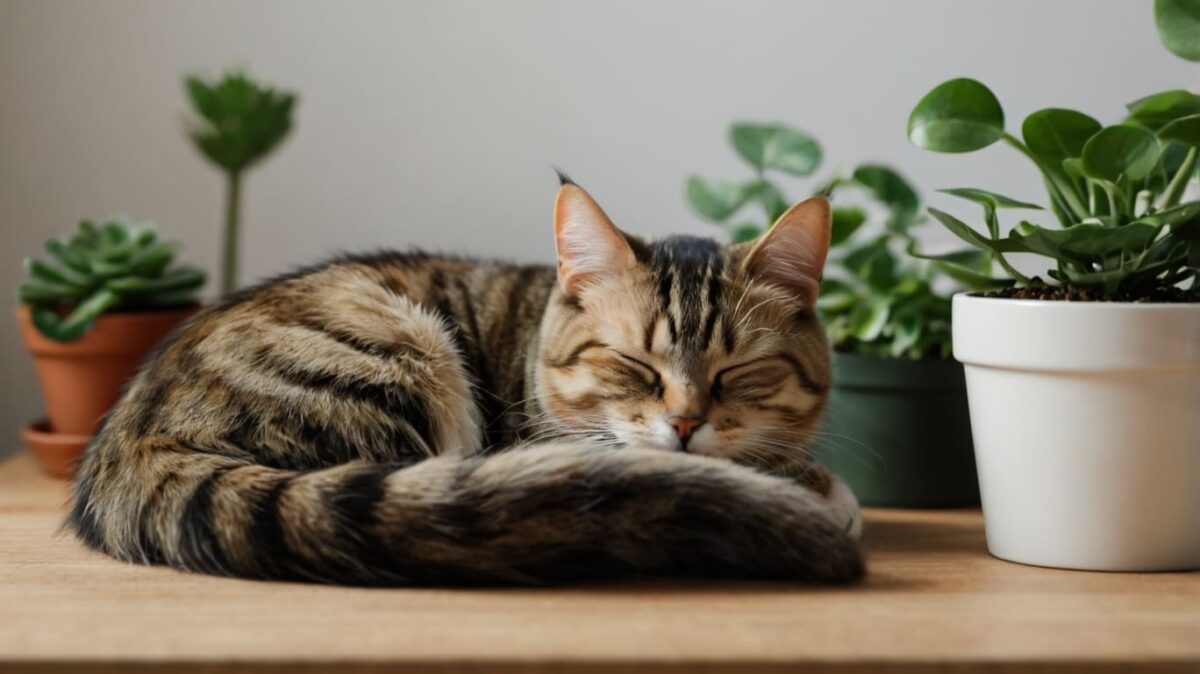
If you have pets, it’s essential to choose non-toxic indoor plants. Here are a few options that are safe for pets and will still brighten up your space:
- Spider Plant: This hardy plant is both non-toxic to pets and known for its air-purifying properties. It thrives in bright, indirect light.
- Peperomia Plants: These compact plants are safe for pets and make a lovely addition to bookshelves or desks.
RELATED: Toxic Houseplants to Keep Away from Cats and Dogs
Designing with Indoor Plants
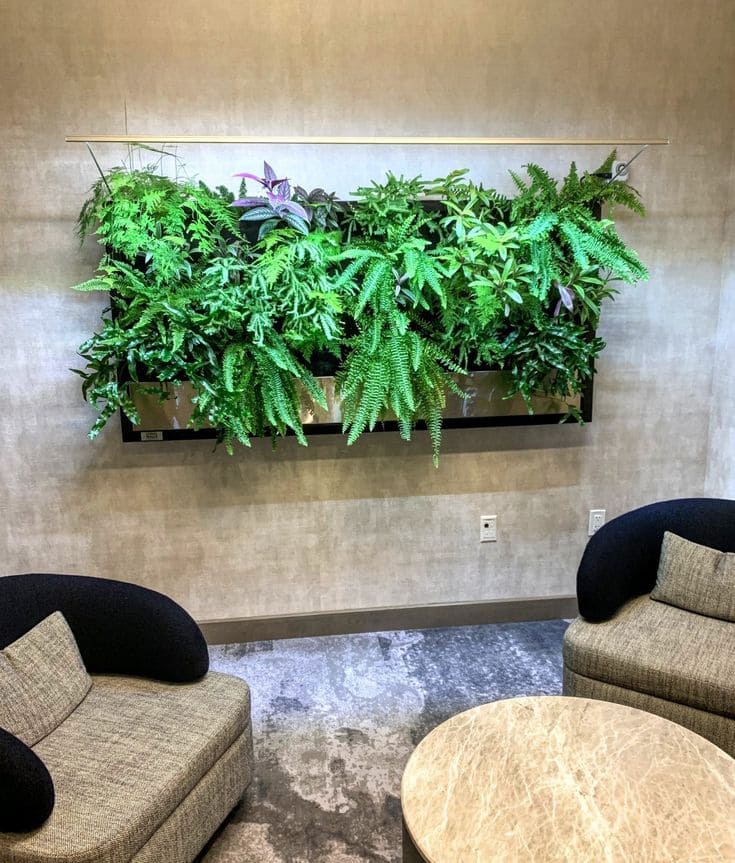
Indoor plants offer endless opportunities for creative home decor. Here are a few ideas to help you incorporate them into your living spaces:
- Living Walls: Use vine-like plants like Pothos or Philodendron plants to create a stunning living wall. These plants can grow vertically, turning an otherwise plain wall into a lush, green focal point.
- Potted Plant Arrangements: Grouping plants in large planters or on a plant stand can create a beautiful centerpiece for dining rooms or entryways.
- Plants as Artwork: Certain plants like the Monstera or Split-leaf philodendron have striking foliage that can be treated as living artwork. Their dramatic leaves create visual interest in any room.
Popular Indoor Plants for Every Space
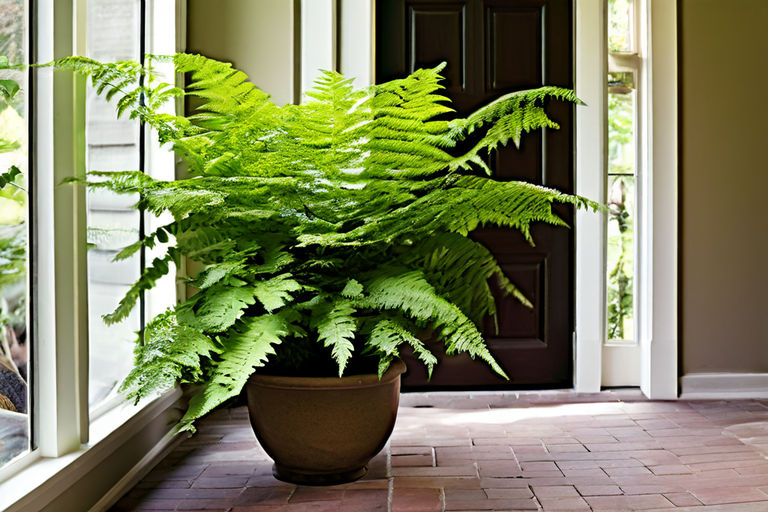
Here’s a list of some of the most common and easy-to-care-for houseplants that fit various design needs and lighting conditions:
- Succulents and Cacti: These low-maintenance plants require little water and thrive in both bright and low light, making them ideal for sunny windowsills.
- Tropical Plants: Consider adding a Split-leaf philodendron or Calathea plants to give your home a touch of the tropics.
- Ferns and Palms: Boston Ferns or Areca Palms bring elegance and can help purify the air, making them ideal for large spaces like living rooms or foyers.
RELATED: Low-maintenance plants ideal for busy people
Specialty Plant Ideas
For something a little more unique, these plants and displays offer a creative twist:
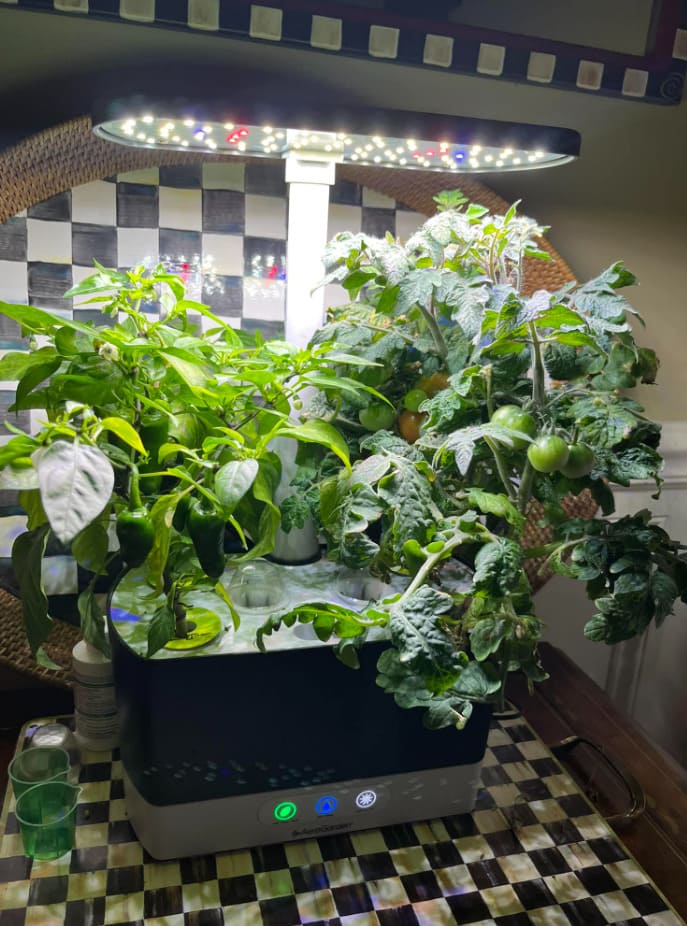
Terrariums and Kokedamas: Perfect for small spaces or shelves, these designs let you showcase your plants in artistic, self-contained ecosystems.
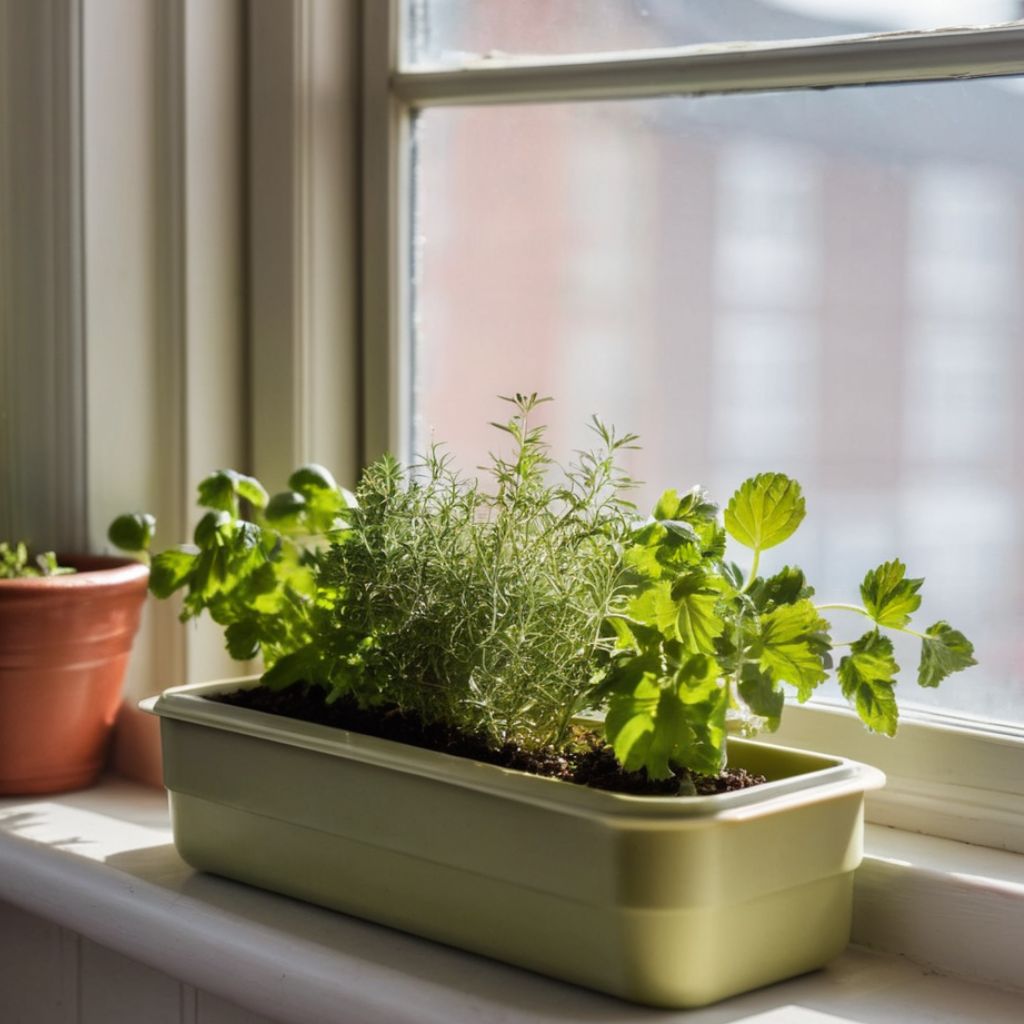
Herb Gardens Indoors: Growing herbs like mint or basil in small pots on your kitchen windowsill is not only practical but adds freshness to your cooking.
Plant Placement Tips for Optimal Growth
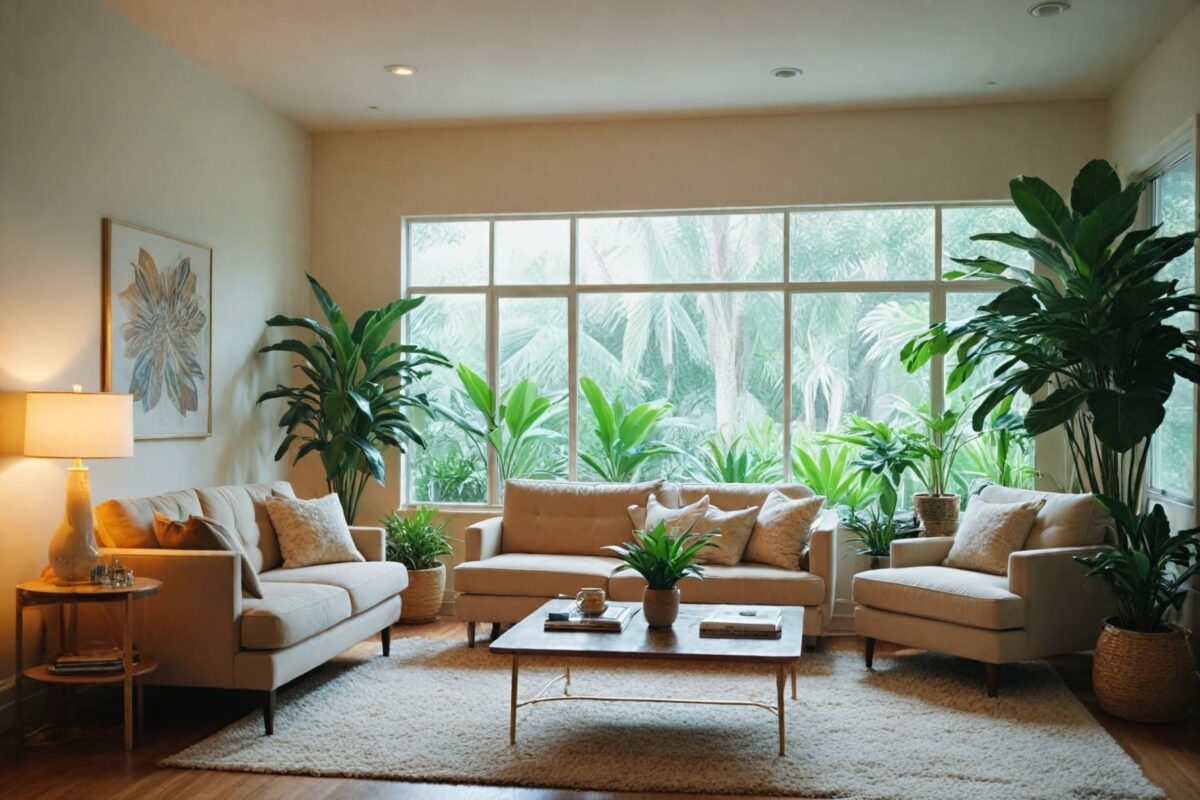
The placement of indoor plants is critical to ensuring they thrive. Here are some ideas for different areas of the home:
- Living Room Layouts: Place larger plants like a Rubber plant or Fiddle leaf fig near windows to take advantage of natural light.
- Humid Rooms: Spider plants, Peace lilies, and Prayer plants thrive in the humidity of bathrooms.
- Bedrooms and Offices: Plants like ZZ plants or Philodendrons help improve air quality and create a calming atmosphere for these spaces.
Troubleshooting Common Indoor Plant Issues
Taking care of indoor plants can come with its challenges. Here are some common problems and how to address them:
Dealing with Pests: Look for common houseplant pests like aphids or spider mites, especially on the undersides of leaves. Use natural solutions like neem oil or insecticidal soap to combat infestations.
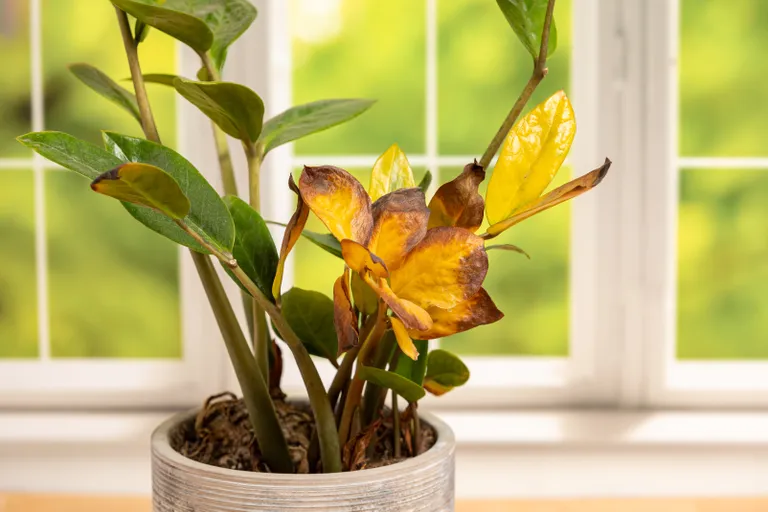
Yellowing Leaves: If you notice yellow leaves, it could indicate overwatering, underwatering, or a lack of nutrients. Adjust watering and consider using a diluted liquid fertilizer to help restore balance.
Recommended Indoor Plants for Beginners
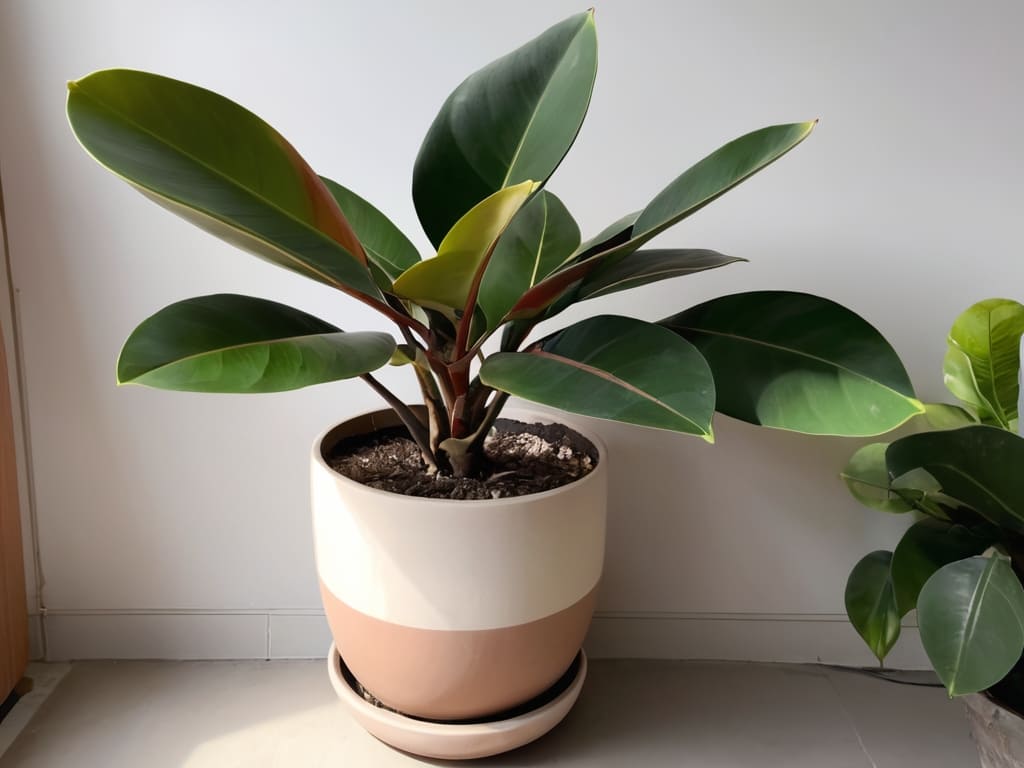
If you’re new to indoor gardening, here are some foolproof options that will thrive with minimal care:
- ZZ Plant: This slow-growing succulent requires very little water and can survive in low-light conditions, making it perfect for low-maintenance spaces.
- Rubber Plant: A resilient plant that can grow tall, the rubber plant thrives in bright, indirect light and helps purify the air.
- Peacock Plant: With its striking foliage colors, this plant adds a pop of color and thrives in humid environments.
By considering your home’s lighting and climate, you can choose the best indoor plants to create a lush, vibrant atmosphere. Whether you opt for low-maintenance varieties like snake plants or air-purifying stars like peace lilies, adding greenery to your home is a rewarding way to enhance your living space.
Happy gardening!

